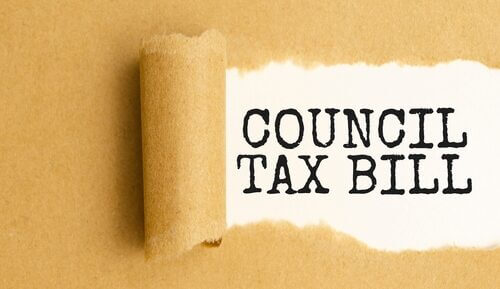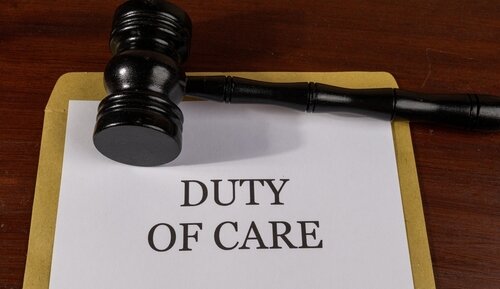Caring for another person can have a huge impact on a person’s physical and mental wellbeing. People who care for another adult can request to have a carer’s assessment. This looks at the impact that their care duties have on their lives and decides whether they are eligible for any support.

Page contents
Each country in the UK has a slightly different system:
- England: Carer’s Assessment
- Scotland: Adult Carer’s Support Plan
- Wales: Carer’s Needs Assessment
- Northern Ireland: Carer’s Assessment
Who can have a carer’s assessment?
Carer’s assessments are for people who care for one or more adults with certain needs.
If the following apply to you and the person you care for, it’s well worth requesting an assessment:
- You are aged 18 or over
- The person you care for is aged 18 or over
- The person you care for is ill, disabled or elderly
- Your caring responsibilities are full or part-time
- You provide care such as help with:
- Washing and dressing
- Preparing or eating food
- Administering medication
- Housework and maintenance
- Driving them around or helping them with public transport
- Feeding, cleaning out or walking their pet
- Managing personal affairs such as their finances
You don’t have to live with the person you care for or be their sole carer in order to request a carer’s assessment. If supporting them is a regular commitment that they rely on, and you juggle this alongside your other commitments, you could be eligible for support.
How do I get a carer’s assessment?
You can request a carer’s assessment (or your country’s equivalent) by contacting your local council.
You can contact them by telephone or write a letter or email. Note that when making your request, each country has different legislation under which your right to the assessment falls, which you may want to reference in your letter.
- England: Request a carer’s assessment under the Care Act (2014)
- Scotland: Request an assessment for an Adult Carer Support Plan (ACSP) under the Social Care Act (2013)
- Wales: Request a carer’s needs assessment under the Social Services and Well-being Act (2014)
- Northern Ireland: Request a carer’s assessment under the Carers and Direct Payments Act (2002)
What happens in the carer’s assessment?
The assessment looks at whether your caring duties are having a significant negative affect on other aspects of your life and your wellbeing. Examples could be that you get no time for yourself, the person you care for verbally or physically abuses you, or it is inhibiting your work or relationships.
Assessments can take place in person, over the phone or online, and you may be able to have someone with you. You may also be able to self-assess using a written or online form; you will then be contacted to discuss your answers.
You and the assessor should discuss:
- Your caring commitments
- How these commitments affect you
- Whether you feel able to cope with the amount of caring you do
- Whether you are willing or able to continue with caring and for how long, plus options for if you stopped
- What support you feel would help you, your goals in getting a carer’s assessment
- Your living situation and how this corresponds with your caring duties
What support could I get after a carer’s assessment?
If you are assessed as having eligible needs, your local authority will look at options for support for either you or the person you care for.
You can refuse the help offered with good reason and suggest help you think would be more appropriate, which they may or may not accept. Once in agreement, your local authority will draw up a support plan, which must be regularly reviewed to ensure that the support you are receiving is working and to keep up with any changes to your needs or circumstances.
Support could be:
Practical support
- Professional care for the person you care for to give you a break or regular breaks from caring
- Any equipment that would help you or the person you care for. For example, a mobility scooter would give the person greater independence and mean that you wouldn’t need to push them in a wheelchair anymore
- Driving lessons
- Help with housework
Emotional support
- An activity to help relieve stress or carer burnout such as a gym membership or other club
- Counselling
Financial support
- Help with costs that you accrue from caring, such as travel and transport costs
- Your assessor may recommend that you apply for certain benefits that you are not receiving, such as Carer’s Allowance
Who pays for my support?
Any support to you as a carer should be paid for by the local authority.
This is usually done by one of three ways:
- You arrange your support and the council gives you money to pay for it.
- You arrange your support and the council pays for it.
- The council arranges and pays for your support for you.
Support for the person you care for may or may not be paid for by the local authority, such as if they have a professional carer come in regularly to give you a break, they would have the same needs assessment and means test as anybody else receiving professional care.
Search for a home care provider
What support is there for carers?
Unpaid carers can be eligible for practical, financial and emotional support to help them manage their care duties and daily life. The support depends on the person’s needs, but could be a professional carer, therapy or even driving lessons
How can I ask for support as a carer?
You can request a carer’s assessment from your local council. Through this, they can assess your duties as a carer, what you find difficult and what support they could put in place to help you. They may also start to put in place a long-term solution if you feel you cannot continue your caring duties for much longer.
Who is a carer’s assessment for?
Carer’s assessments are for adults who support other adults with certain needs, and this support is not their profession. Often the carer will be juggling your care duties with other commitments such as work and childcare, or be struggling due to being elderly or ill themselves. Caring duties could include support with a range of tasks, from eating to pet care to managing finances.


